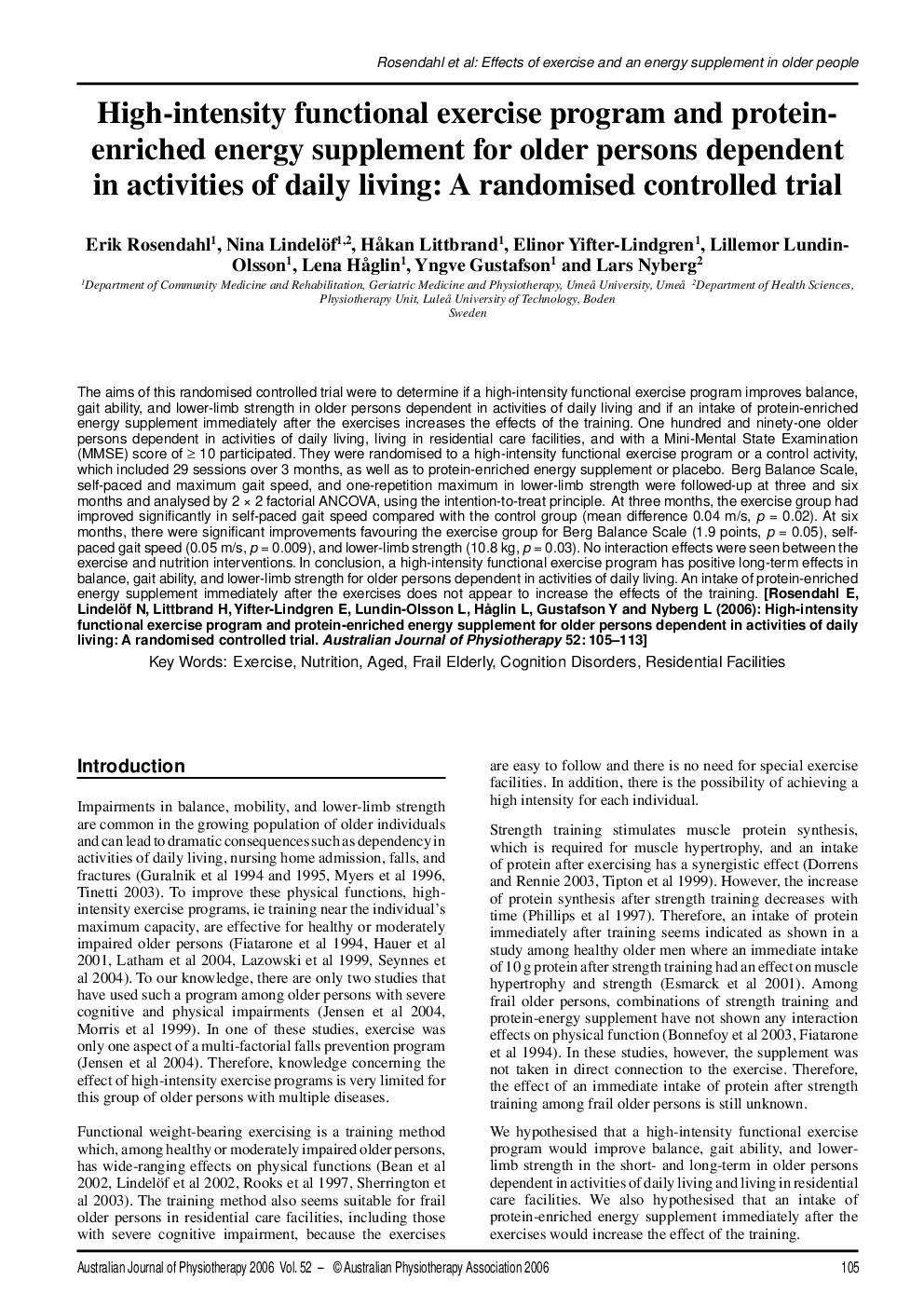| Article ID | Journal | Published Year | Pages | File Type |
|---|---|---|---|---|
| 2704793 | Australian Journal of Physiotherapy | 2006 | 9 Pages |
The aims of this randomised controlled trial were to determine if a high-intensity functional exercise program improves balance, gait ability, and lower-limb strength in older persons dependent in activities of daily living and if an intake of protein-enriched energy supplement immediately after the exercises increases the effects of the training. One hundred and ninety-one older persons dependent in activities of daily living, living in residential care facilities, and with a Mini-Mental State Examination (MMSE) score of ≥ 10 participated. They were randomised to a high-intensity functional exercise program or a control activity, which included 29 sessions over 3 months, as well as to protein-enriched energy supplement or placebo. Berg Balance Scale, self-paced and maximum gait speed, and one-repetition maximum in lower-limb strength were followed-up at three and six months and analysed by 2 × 2 factorial ANCOVA, using the intention-to-treat principle. At three months, the exercise group had improved significantly in self-paced gait speed compared with the control group (mean difference 0.04 m/s, p = 0.02). At six months, there were significant improvements favouring the exercise group for Berg Balance Scale (1.9 points, p = 0.05), selfpaced gait speed (0.05 m/s, p = 0.009), and lower-limb strength (10.8 kg, p = 0.03). No interaction effects were seen between the exercise and nutrition interventions. In conclusion, a high-intensity functional exercise program has positive long-term effects in balance, gait ability, and lower-limb strength for older persons dependent in activities of daily living. An intake of protein-enriched energy supplement immediately after the exercises does not appear to increase the effects of the training.
